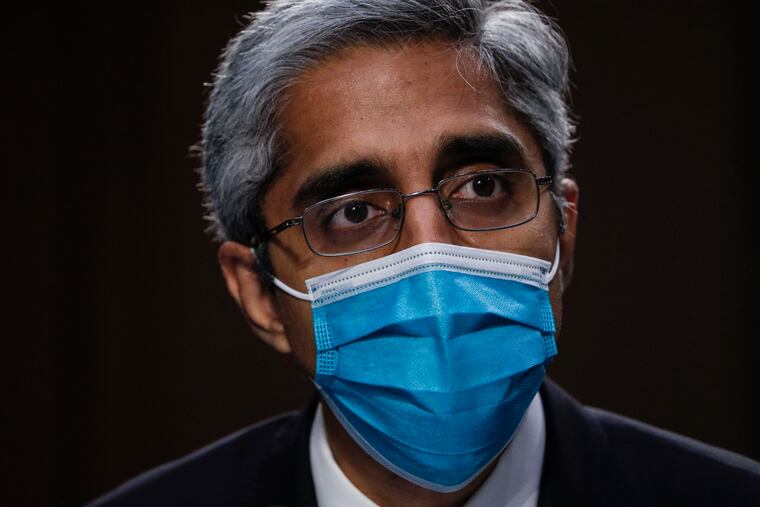Senate confirms Vivek Murthy as surgeon general
All 50 Senate Democrats and independents voted to support Murthy, joined by seven Republicans.

WASHINGTON - The Senate on Tuesday voted 57 to 43 to confirm Vivek Murthy as United States surgeon general, making way for a top ally of President Joe Biden to play a highly visible role in responding to the coronavirus pandemic.
All 50 Senate Democrats and independents voted to support Murthy, joined by seven Republicans.
The surgeon general, also known as the "nation's doctor," typically serves as a prominent spokesperson on public health issues but has a limited role in policymaking. But Biden has pledged that Murthy - who advised him in the Obama White House, on the board of the Biden Institute at the University of Delaware and, most recently, during the presidential campaign and transition - will have an expanded role in his administration.
"He will be a key public voice on the covid response to restore public trust and faith in science and medicine," Biden said when he nominated Murthy in December. "One of the reasons doc, I asked you to do this, when you speak, people listen. They trust you. You have a way of communicating."
The surgeon general also oversees the U.S. Public Health Service commissioned corps, a uniformed service of about 6,000 public health workers who have helped staff the coronavirus response and administer vaccines but struggled this year to get vaccinations of their own.
Murthy, 43, first served as surgeon general during the Obama administration, working on public health issues such as the opioid crisis. He also pursued his own work combating loneliness and the stigma of mental illness. He was the nation's first Asian American surgeon general.
His original 2013 nomination was stalled in the Senate for about a year, in part because gun rights organizations faulted Murthy for saying gun violence was a public health problem - a stance Murthy has continued to espouse.
Murthy's nomination to return as surgeon general under Biden drew scrutiny from watchdogs who flagged that Murthy was paid more than $2 million in coronavirus-related consulting fees last year by companies in the cruise, travel and other industries, setting up a potential conflict in his role as public health spokesperson. Senate Democrats sidestepped the issue, and Senate Republicans said they generally support nominees with industry experience. Murthy has pledged to recuse himself from any conflicts as surgeon general.
Sen. Tammy Duckworth, D-Ill., earlier Tuesday pledged to withhold her votes for Biden's nominees until the president put forward a more diverse slate, criticizing the White House for not having an Asian American or Pacific Islander member of the Cabinet. Duckworth did say she would support Murthy and other nominees who were racial minorities or LGBTQ. Sens. Bill Cassidy, R-La., Susan Collins, R-Maine, and Mitt Romney, R-Utah, were among the Senate Republicans who crossed the aisle to support Murthy.
Advocates for Asian Americans and Pacific Islanders had been pushing for Murthy's confirmation, seeking representation across the Biden administration. The surgeon general is a sub-Cabinet level position.
Murthy briefly served in the Trump administration, though the president fired Murthy in early 2017, about halfway through Murthy's four-year term. Trump replaced Murthy with Jerome Adams, a former Indiana health official and longtime ally of Mike Pence, who was vice president at the time. Biden asked for Adams's resignation in January, clearing the way for Murthy to return to his prior role.
"The most important job of a doctor is to help patients heal," Murthy testified to the Senate Health, Education, Labor and Pensions Committee in his confirmation hearing last month. "And if confirmed, that will be my mission as surgeon general - to do whatever I can to help heal our communities and our nation."
Susan Orsega, a rear admiral in the U.S. Public Health Service commissioned corps and a nurse practitioner, has served as acting surgeon general since January.